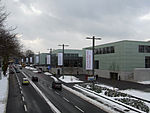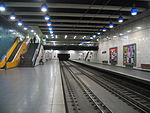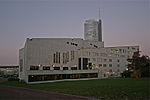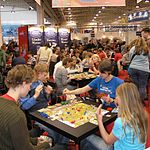Rüttenscheider Stern station
German rapid transit stubsNorth Rhine-Westphalia building and structure stubsRailway stations in EssenUnderground rapid transit in Germany
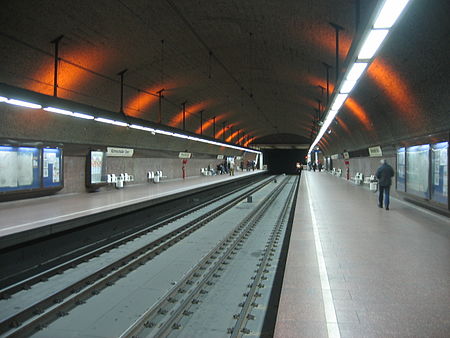
Rüttenscheider Stern is an underground station on the Essen Stadtbahn line U11 in Essen. The station lies on Rüttenscheider Stern in the district of Rüttenscheid. It is equipped with three-rail tracks to allow tramway cars of the lines 101 and 107 to stop at the station as well. The station was opened on June 1, 1986 and consists of two side-platform with two rail tracks. On the surface, it provides connection to the 106 tramway line.
Excerpt from the Wikipedia article Rüttenscheider Stern station (License: CC BY-SA 3.0, Authors, Images).Rüttenscheider Stern station
Rüttenscheider Straße, Essen Rüttenscheid (Stadtbezirk II)
Geographical coordinates (GPS) Address External links Nearby Places Show on map
Geographical coordinates (GPS)
| Latitude | Longitude |
|---|---|
| N 51.437777777778 ° | E 7.0055555555556 ° |
Address
Rüttenscheider Stern
Rüttenscheider Straße
45130 Essen, Rüttenscheid (Stadtbezirk II)
North Rhine-Westphalia, Germany
Open on Google Maps
